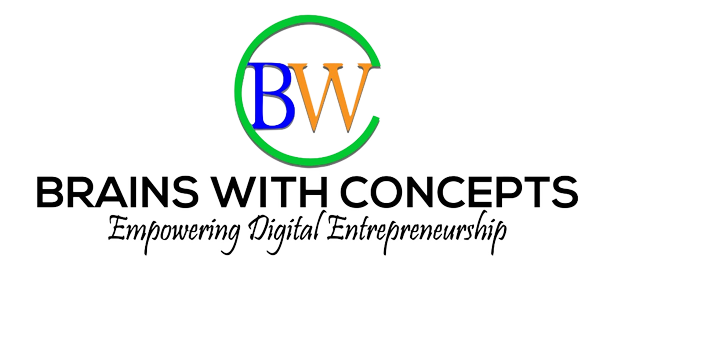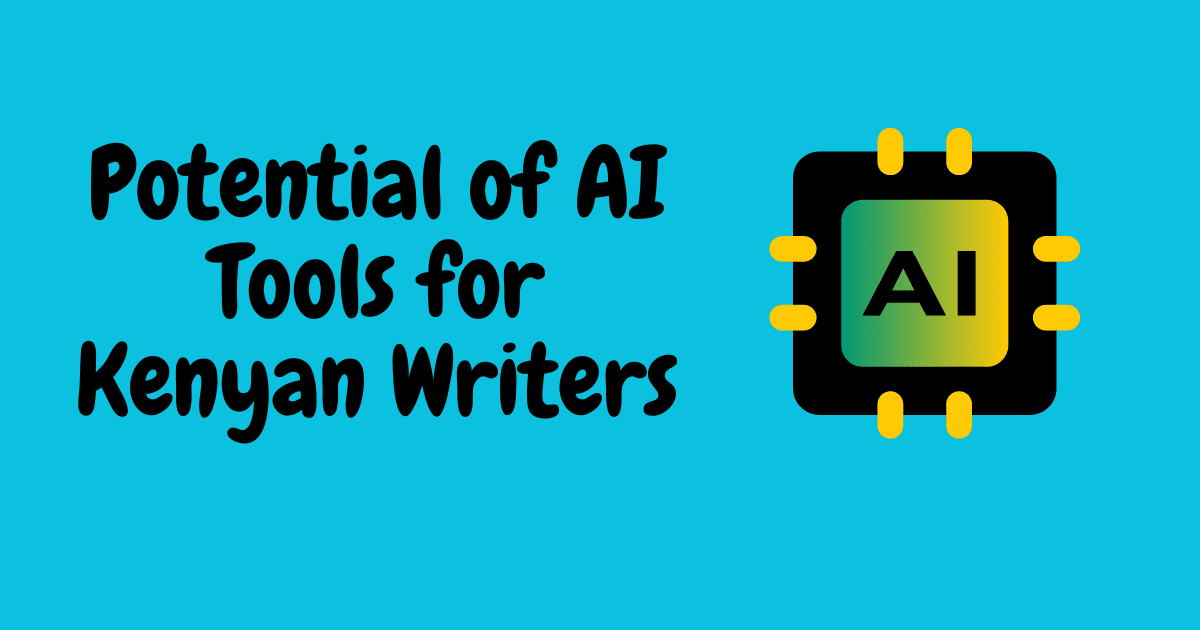The digital writing landscape is buzzing with conversations about artificial intelligence, and if you’re a Kenyan writer, you’ve probably wondered: “Will AI replace me?” or “Should I be worried about my writing career?” These concerns are natural, but here’s the reality – AI isn’t your competition; it’s your most powerful writing assistant waiting to be unleashed.
When used ethically and strategically, AI tools can dramatically boost your efficiency, spark creativity, and expand your earning potential as a Kenyan writer. Whether you’re freelancing for international clients, creating content for local businesses, or building your personal brand, AI can help level the playing field in ways that were unimaginable just a few years ago.
In this comprehensive guide, you’ll discover practical AI tools for Kenyan writers applications that work, learn ethical considerations that protect your reputation, and understand how to stay ahead in an evolving industry. Most importantly, you’ll see how AI can help you overcome common challenges like time zone differences with international clients and resource limitations that many African writers face.
Understanding What AI Tools Can (and Can’t) Do for Writers
Before diving into specific tools, let’s establish realistic expectations about AI’s capabilities and limitations.
Where AI Excels
AI tools shine brightest when handling specific, structured tasks. They’re exceptional at brainstorming ideas and creating outlines – imagine asking AI to generate 20 different angles for a blog post about “sustainable tourism in Kenya” and receiving diverse, creative suggestions within seconds. For Kenyan writers working with tight deadlines, this brainstorming speed is invaluable.
AI also excels at generating first drafts for straightforward content like product descriptions, email newsletters, or social media captions. It can summarize lengthy research papers, extract key information from client briefs, and even help with grammar and style checking through advanced tools like Grammarly’s AI-powered suggestions.
Translation and rephrasing capabilities are particularly useful for Kenyan writers serving diverse markets. AI can help you adapt content for different audiences or translate concepts between languages, though always with human oversight.
Where AI Falls Short
Despite its impressive capabilities, AI has significant limitations that every Kenyan writer must understand. AI lacks true creativity, nuance, and human empathy – qualities that make great writing resonate with readers. It cannot capture your unique voice or create authentic storytelling that connects with your audience on an emotional level.
Factual accuracy remains a major concern, as AI can confidently present outdated or incorrect information. This is particularly problematic when writing about rapidly changing topics or local Kenyan contexts that AI models may not fully understand.
Perhaps most critically for Kenyan writers, AI often lacks cultural context and local insights. It might miss the nuances of writing for Kenyan audiences or fail to understand regional preferences and cultural sensitivities that are crucial for effective local content.
The Writer + AI Synergy
The magic happens when you view AI as your collaborative partner, not your replacement. Think of AI as an incredibly fast research assistant and first-draft generator, while you bring the critical thinking, cultural understanding, and human touch that transforms good content into exceptional content.
Practical AI Tools for Kenyan Writers Toolkit
Let’s explore specific AI tools that can revolutionize your writing workflow without breaking the bank.
General-Purpose AI Platforms
ChatGPT and Google Gemini are your go-to tools for versatile writing assistance. Use ChatGPT to brainstorm angles for uniquely Kenyan topics – for instance, “Generate 15 engaging angles for a blog post about mobile money’s impact on rural Kenyan businesses.” These platforms excel at generating multiple headline options, helping you choose the most compelling approach for your content.
When working with complex client briefs, use AI to create detailed outlines. Try prompts like “Create a comprehensive outline for a white paper about renewable energy opportunities in East Africa” – you’ll receive structured, logical frameworks that you can then customize with your expertise and research.
AI is also invaluable for summarizing lengthy research papers or dense client materials, helping you quickly identify key points and focus your writing efforts where they matter most.
Grammar and Style Enhancement Tools
Grammarly and ProWritingAid go beyond basic spell-checking to offer AI-powered style suggestions, tone adjustments, and clarity improvements. For Kenyan writers serving international clients, these tools help maintain professional writing standards while preserving your authentic voice.
These platforms are particularly valuable when you’re writing outside your comfort zone or adapting your style for different industries. They catch subtle errors that human eyes might miss during late-night writing sessions and help ensure consistency across long-form content.
Content Generation Specialists
Jasper and Copy.ai specialize in marketing and advertising copy, making them perfect for Kenyan writers focusing on commercial content. These tools can quickly generate multiple variations of social media posts, ad copy, or product descriptions, giving you a strong starting point for refinement.
While these tools are powerful for repetitive writing tasks, remember that their output requires significant human editing to add personality, cultural relevance, and authenticity that resonates with your target audience.
Transcription and Audio Tools
Otter.ai and Descript are game-changers for Kenyan writers conducting interviews or working with audio content. Whether you’re transcribing interviews with local entrepreneurs in Nairobi or converting recorded client meetings into written summaries, these tools save hours of manual transcription work.
These platforms are particularly valuable when working with vernacular content or conducting research in local communities, though you’ll need to review and clean up transcriptions for accuracy, especially with accented English or mixed-language conversations.
Ethical Considerations and Best Practices for Kenyan Writers
Using AI tools effectively means using them responsibly. Your reputation as a professional writer depends on maintaining high ethical standards while leveraging these powerful technologies.
Originality and Plagiarism Prevention
AI-generated content still requires rigorous originality checks and human oversight. Never publish AI output without substantial editing, fact-checking, and personalization. Use plagiarism detection tools to ensure your AI-assisted content doesn’t inadvertently duplicate existing work.
Remember that while AI can generate text, it cannot generate original thoughts, unique insights, or personal experiences – these irreplaceable elements are what make your writing valuable.
Fact-Checking is Non-Negotiable
AI can confidently present incorrect information, making fact-checking absolutely essential. Always verify statistics, quotes, dates, and claims generated by AI tools. This is particularly important when writing about Kenyan topics, where AI might have limited or outdated information.
Develop a systematic fact-checking process and maintain reliable sources for verification. Your credibility as a writer depends on the accuracy of every piece you publish.
Transparency with Clients
Consider how and when to inform clients about your AI tool usage. Many clients appreciate transparency about your process, especially when it results in faster turnaround times and competitive pricing. However, always ensure your contract terms are clear about your methods and deliverables.
Focus on communicating the value you add through AI assistance – faster research, more comprehensive outlines, and polished final products – rather than simply mentioning tool usage.
Preserving Your Unique Voice
Use AI to enhance, not replace, your personal writing style and cultural authenticity. Your unique perspective as a Kenyan writer, understanding of local contexts, and ability to connect with specific audiences remain your most valuable assets.
Regularly review your AI-assisted work to ensure it still sounds like you and reflects your authentic voice. If AI is making your writing feel generic or impersonal, adjust your approach.
Understanding and Mitigating AI Bias
AI models can reflect biases present in their training data, potentially affecting how they represent different cultures, genders, or perspectives. Be particularly vigilant when AI generates content about sensitive topics or diverse communities.
Always review AI-generated content through the lens of fairness, representation, and cultural sensitivity, especially when writing for diverse Kenyan audiences.
Staying Ahead: The Future of AI and Online Writing in Kenya
The AI landscape evolves rapidly, and successful Kenyan writers will be those who adapt and grow with these changes.
Continuous learning is essential. Follow AI developments, experiment with new tools, and regularly update your skills. Join online communities where writers share AI tips and strategies, and consider formal training programs that teach ethical AI integration.
Focus on developing skills that complement AI capabilities: critical thinking, strategic editing, effective prompting, and humanizing AI output. These meta-skills will become increasingly valuable as AI tools become more sophisticated.
View AI proficiency as a competitive advantage, not a threat. Writers who can effectively combine AI efficiency with human creativity and cultural understanding will be in high demand from clients who want both speed and quality.
The future may bring AI tools specifically designed for African markets and contexts. Stay informed about local AI developments and be ready to adopt tools that better understand Kenyan culture, languages, and business environments.
Conclusion
AI represents a powerful opportunity for Kenyan writers to enhance their capabilities, increase their efficiency, and compete more effectively in global markets. The key is approaching these tools as collaborative partners that amplify your human strengths rather than replace them.
Your cultural insights, creative thinking, and authentic voice remain irreplaceable. AI simply helps you work faster, research more thoroughly, and produce polished content that showcases your unique talents.
The writers who will thrive in this AI-enhanced future are those who embrace these tools ethically, use them strategically, and never forget that great writing ultimately comes from human understanding, empathy, and creativity.
Ready to ethically leverage cutting-edge AI tools to boost your writing productivity and elevate your craft? Brains With Concepts provides specialized online writing training in Kenya, including comprehensive modules on effectively and ethically integrating AI into your workflow. Discover how to harness AI’s power while maintaining your authentic voice and professional integrity – join our next class and transform your writing career today!

